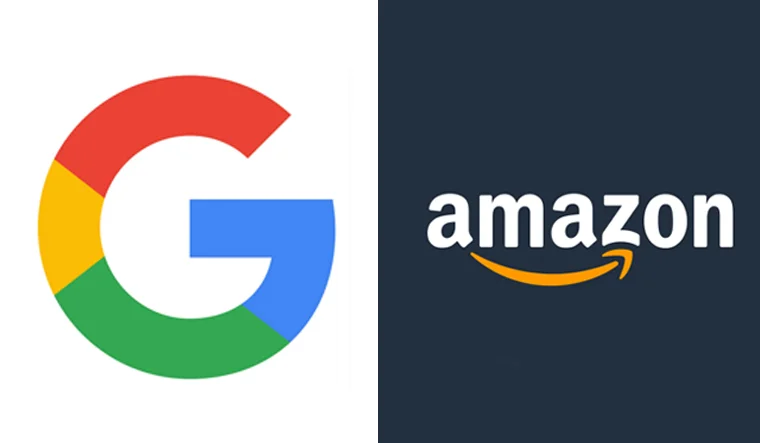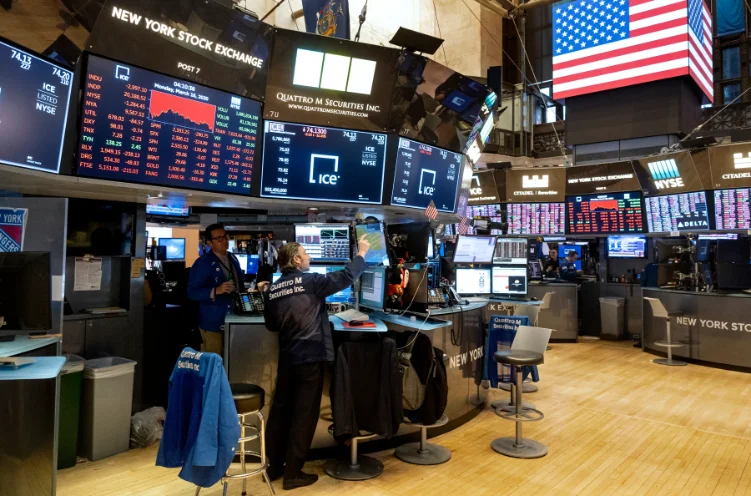Amazon’s stock was down 1% in midday trading as investors didn’t seem too concerned at the outset. Meanwhile, Alphabet Inc.’s stock, the parent company of Google, saw a slight increase as Google celebrated its 25th birthday.
Yesterday marked Google’s 25th birthday, but it’s also a day when investors are reacting to a lawsuit by the Federal Trade Commission and 17 states against Amazon.com Inc. The lawsuit accuses Amazon of “illegally maintaining monopoly power.”
Both companies share a common thread in their long-term success. Amazon has excelled in online retail, and Google has dominated the internet search industry. However, they’ve also expanded into other areas. Amazon’s gem is Amazon Web Services, a significant player in the cloud-services arena, competing with Microsoft Corp.’s Azure platform and Google Cloud Platform. Alphabet has found success with YouTube and more recently with YouTube TV, boasting “over 5 million subscribers and trial users,” according to the company.
Both Amazon and Google have been incredibly successful in their core businesses. With the possibility of Amazon facing a breakup due to legal actions, it’s not far-fetched to consider the idea that Alphabet, the parent company of Google, could also face similar challenges.
In January, the Justice Department filed a lawsuit against Google, alleging that it was monopolizing digital advertising technologies. The lawsuit even suggested that Google might need to divest certain units and take additional actions to address any anticompetitive issues.
Recently, the Federal Trade Commission (FTC) and several states accused Amazon of employing various anticompetitive strategies to maintain its monopoly status. These tactics have allegedly prevented rivals and sellers from lowering prices, harmed product quality for consumers, overcharged sellers, stifled innovation, and hindered fair competition.
FTC Chair Lina Khan emphasized that the lawsuit aims to hold Amazon accountable for these monopolistic practices and restore the promise of free and fair competition. While the specifics might appear somewhat unclear, the 172-page complaint from the plaintiffs requests various remedies, including structural changes, to address and prevent Amazon’s alleged violations of the law.
This could potentially lead to profits for Amazon’s shareholders down the road. When we talk about “structural relief,” it means the company might be broken up into smaller parts. This could be a good thing for investors because it would allow them to assign a value to Amazon Web Services (AWS). In the second quarter, AWS had a substantial operating margin of 24.23%, and its operating income was $5.365 billion, accounting for 70% of Amazon’s total operating income.
AWS also generated 26.8% of Amazon’s total net sales, which amounted to $22.14 billion in quarterly net sales. In comparison, Amazon’s total net sales grew by 10.9% from the same quarter the previous year, while AWS experienced a 12.2% increase in sales.
The argument here is that AWS has been somewhat hidden within Amazon’s overall business. Amazon’s stock has traditionally had a high trading value compared to its earnings because the company has reinvested its cash flow into continuous expansion. However, if AWS were to operate as a separate entity, its valuation could follow a more conventional approach.
According to D.A. Davidson analyst Tom Forte, breaking up Amazon into three separate units—direct retail, third-party retail, and AWS—could significantly benefit shareholders. Forte’s calculations suggest that, under this scenario, the stock’s value could reach up to $193 per share when considering the sum of the parts. For reference, the stock closed at $125.98 on Tuesday.
The trial involving Google began on September 12 in U.S. District Court in Washington, D.C.
JPMorgan analyst Doug Anmuth, in a report dated September 8, stated that many professional investors view the Google trial as a “win-win” for Google. Here’s why: If Google wins the case, it maintains its current position. If it loses, it could potentially recover tens of billions of dollars in traffic-acquisition cost payouts, with possibly little impact on its overall search volume, market share, and revenue.
While both Amazon and Alphabet are often considered tech stocks, it’s worth noting that Amazon falls under the S&P 500 Consumer Discretionary sector, whereas Alphabet falls under the Communication Services sector. These sectors, along with the IT sector, are represented in the discussion.
In terms of performance, Amazon has had a challenging five-year run, ranking as the worst performer among all stocks, sectors, or indices in the analysis. However, it has been the top performer over a ten-year period. It’s interesting to note that a decade ago, one might have reasonably assumed that Amazon’s best growth years were behind it.
Amazon typically trades at a high forward price-to-earnings (P/E) ratio, primarily because the company has focused on expansion rather than emphasizing its bottom line. However, when looking at the forward price-to-sales ratio, Amazon’s valuation is actually lower than that of the S&P 500.
Alphabet’s price-to-sales ratio is relatively high, but it falls below the IT sector’s level. While its forward P/E valuation is elevated when compared to the S&P 500, it may appear more reasonable when considering factors like the Nasdaq-100 and future estimates for earnings and sales growth.
Amazon is anticipated to maintain robust sales growth, and both companies are expected to deliver solid results compared to their respective sectors and benchmarks.
Out of 53 analysts surveyed by FactSet, a whopping 50 recommend buying Amazon’s stock or an equivalent rating. The average price target for Amazon over the next year is $172.60. This target represents a 37% increase from Amazon’s closing price on Tuesday.
As for Alphabet, 45 out of 55 analysts rate the stock as a buy, and the consensus price target is $150.18. This target is 17% higher than Alphabet’s closing price on Tuesday.





